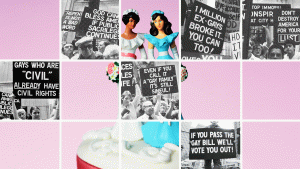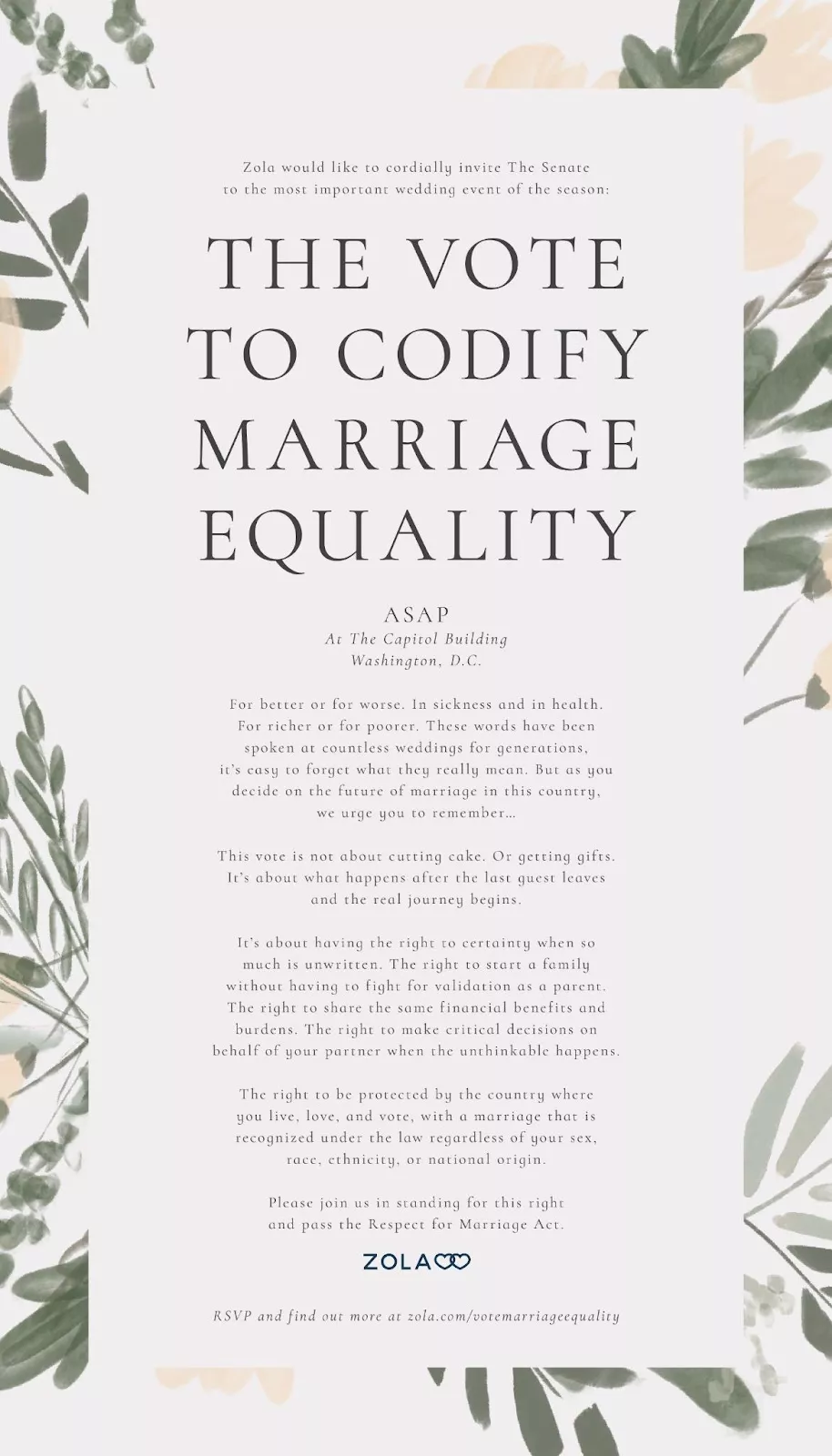
2022 was also the year that the Supreme Court challenged marriage equality in the same decision that overturned Roe v. Wade, reigniting fears and suspicions that the Court’s own progress, affirmed only seven years earlier, would be rolled back. It was during this year that my team at Zola received an email from a same-sex couple planning their wedding that read, “We really did this because we were afraid the Supreme Court would deny us the right to marry before we had the chance to do so. This is just one example of how we have witnessed firsthand how this devastating and divisive year has impacted LGBTQ+ couples in the wedding planning process.
Now, the court is hearing arguments in 303 Creative LLC v. Elenis, where a website designer, Lorie Smith, is seeking an exception to Colorado’s anti-discrimination law because she doesn’t want to create a website for same-sex weddings. How in the world are we still here?
My co-founders and I started Zola in 2013 because the wedding industry needed an overhaul. The industry lacked the representation and technology of today’s modern couples, so we launched Zola as a platform built for everyone. Since then, we cheered when Obergefell v. Hodges meant that states had to license and recognize same-sex marriage.

Just as the 2018 Masterpiece Cakeshop case wasn’t about wedding cakes, this one isn’t about wedding websites either. Somehow, wedding websites – places where couples can tell their beautiful stories and share wedding details with guests – are now on the front lines of LGBTQ+ rights. What the Supreme Court will actually decide is whether businesses can deny services to same-sex couples on sound legal grounds, and the implications for future generations of couples could be enormous and harmful. Weddings are being used by a small group of people as a tool to pass extreme agendas and beat back hard-won freedoms. lorie Smith is not in the wedding business and she is not a representative of our supportive and inclusive industry. She has never actually produced a wedding website for anyone, regardless of their sexual orientation.
At Zola, the focus is always on how two people combine their backgrounds and perspectives into one ceremony, and how they express their love for each other through every part of their wedding day. Michael and George, and every other couple, never have to worry about whether their love will be used as a political bargaining chip or whether their florist will claim artistic freedom.
What is clear is just how far apart the Supreme Court is from public opinion. 71 percent of Americans support same-sex marriage, and that number is rising every year. The country is changing, too. According to a recent Gallup poll, the percentage of American adults who identify themselves as LGBTQ+ has doubled in the last decade, and one in five Gen-Z adults consider themselves part of the LGBTQ+ community.
But the wedding industry is following suit. Thousands of vendors in our community, from planners and venues to caterers, florists and photographers, have happily agreed to our Vendor Pledge (opens in a new tab), supporting every couple’s right to marry and promising to treat everyone with the love and respect they deserve. These vendors are talented, but united in their commitment to help make the wedding vision a reality. They truly represent and understand today’s couples. Heterosexual couples can also take a stand for their own weddings by supporting inclusive vendors.
Celebrate differences, bring people together, and listen to them. Our leaders, and those who bring these legal cases under false pretences, can learn a lot from the wedding industry.
We all need to do more. We need to recognize these threats to same-sex marriage. We need to stand taller, shout louder, and fight for the marriage rights of all American couples.
After all, aren’t weddings better when everyone is invited?